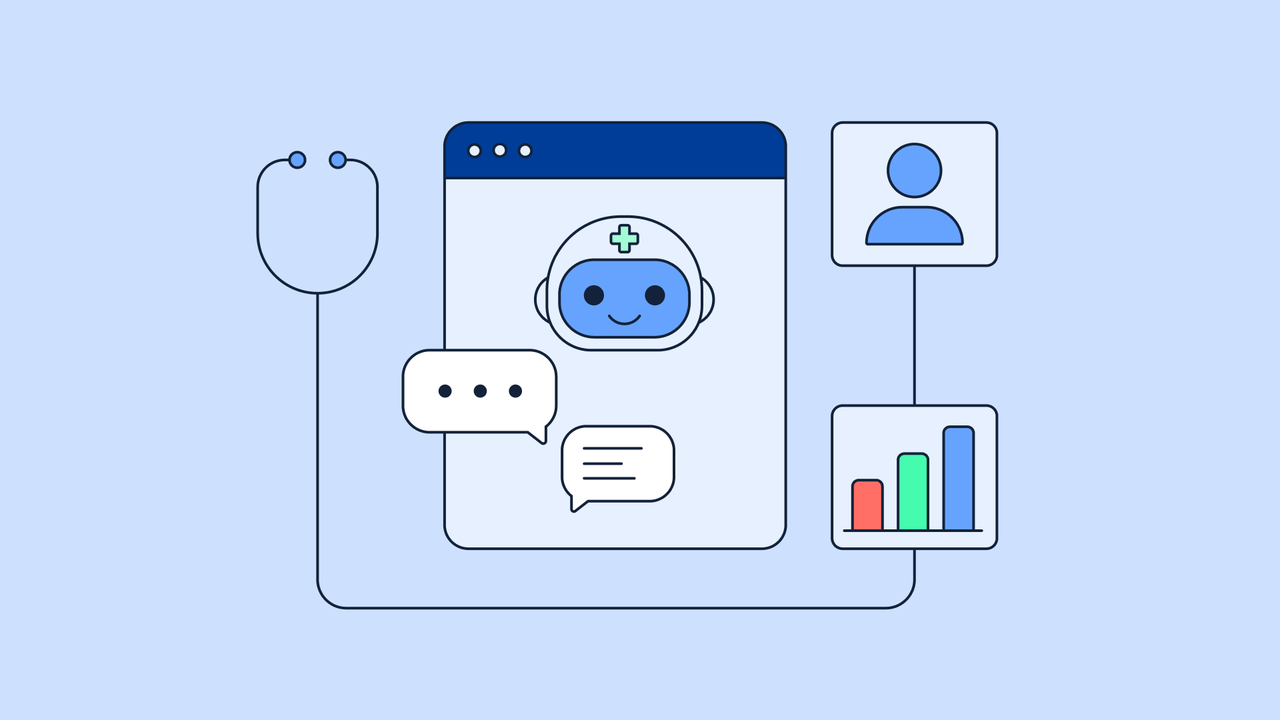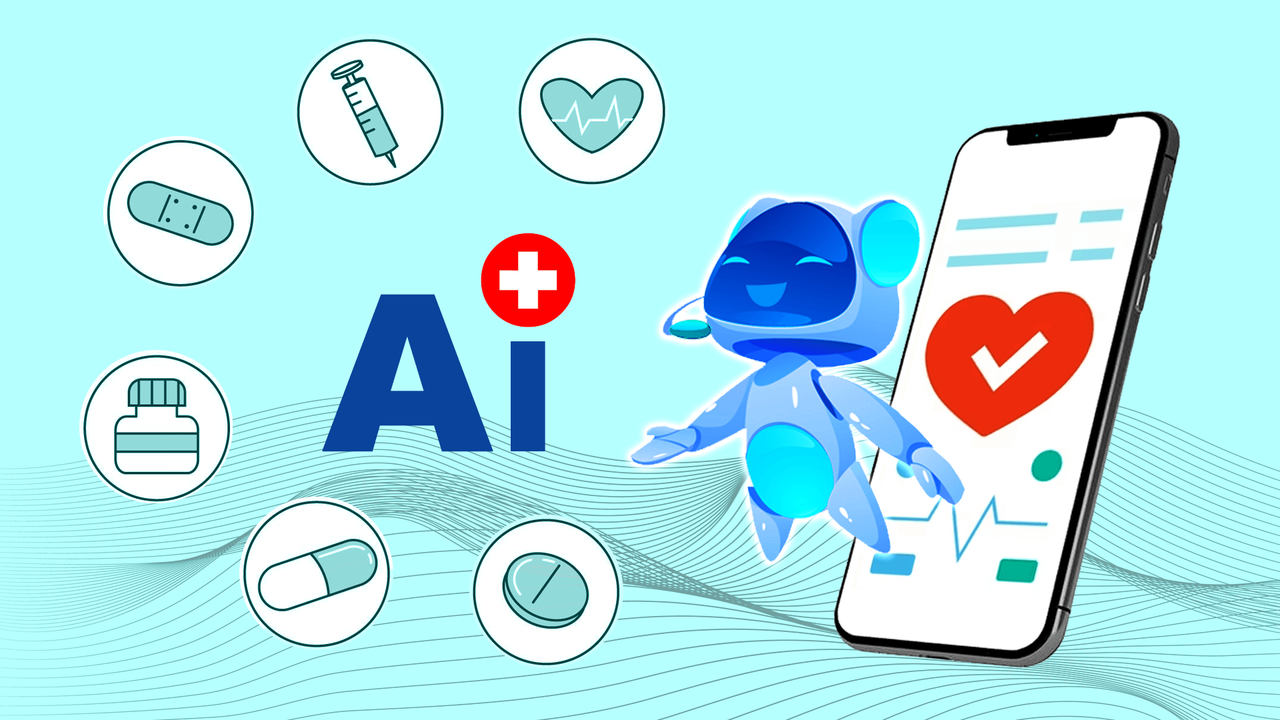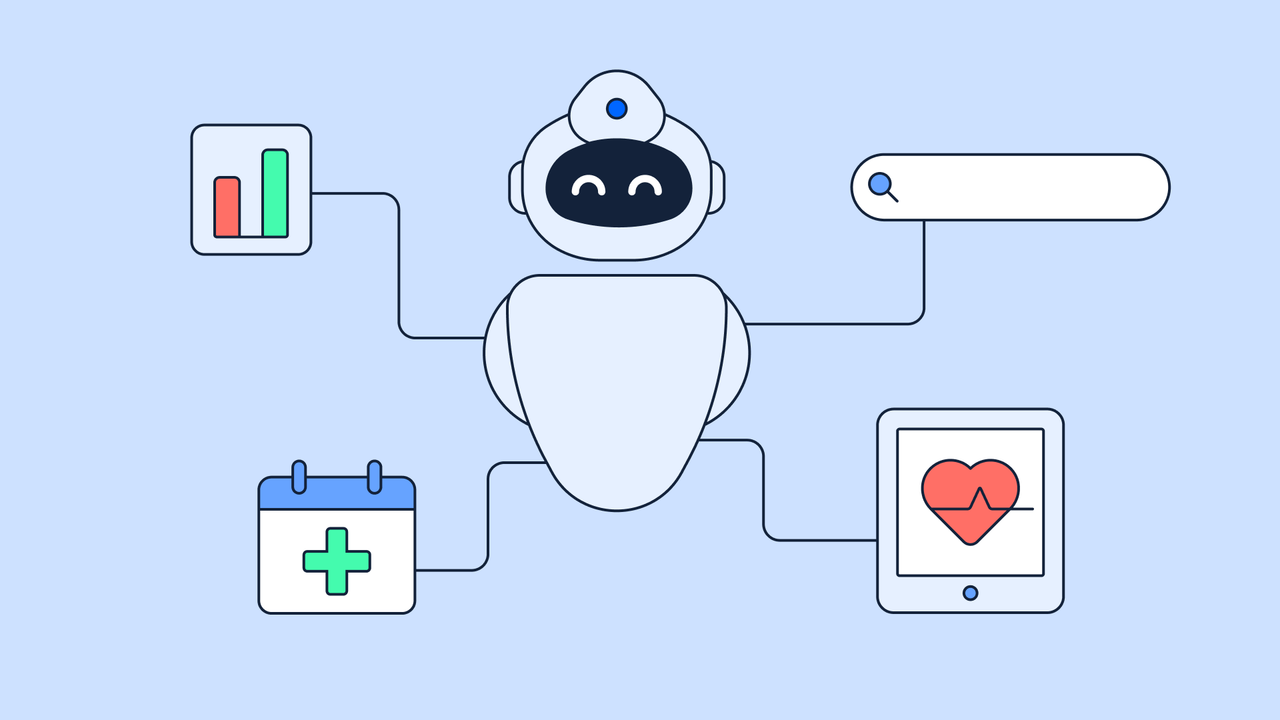

What if you could book a doctor’s appointment, ask about your symptoms, and get reminders for your medicines – all by just chatting with a bot? Sounds futuristic, right? But guess what, it’s already happening. AI chatbots in healthcare are making hospitals and clinics smarter, faster, and more efficient. In this article, let’s talk about how these bots are changing the face of healthcare, what they can and cannot do, and the serious questions we still need to ask about their use.
Let’s start with a simple question – how many times have you had to wait on a hospital call just to book an appointment? Now imagine a chatbot replying instantly, fixing your date, and even sending you a reminder before the visit. That’s exactly how AI chatbots in healthcare are improving patient experience.
These chatbots reduce waiting time, help in quick appointment scheduling, send medicine reminders, and answer common health queries. They work 24/7 without getting tired, which means more patients get help on time and medical staff can focus on treating people instead of handling paperwork.

Here is what Gordon Hirsch, Founder and Managing Attorney at Hirsch Law Group, says:
“Patient care processes get better because AI chatbots decrease waiting periods while enhancing operational efficiency. AI technology enables patients to bypass telephone waiting room experiences by generating instant responses and facilitating appointment bookings as well as scheduling follow-up care communications. The bots enable medical staff to dedicate their time to advanced responsibilities by liberating administrative personnel from their workload. By analyzing patient data and preferences AI systems help healthcare organizations schedule appointments with perfect match specialists which streamlines scheduling operations and lowers non-appointment attendance.”
And here's what Chandresh Patel, CEO of Bacancy, shares:
“Nearly 50% of missed doctor appointments happen because patients forget or don't find straightforward scheduling options. That's where AI-powered chatbots step in. They handle appointments, medication reminders, and instant Q&A support without burdening the staff. For example, let's talk about the NHS in the UK. They used chatbots for appointment scheduling. And the result? A 30% reduction in no-shows. That's thousands of patients actually getting the care they need instead of getting lost in the system. At Bacancy, we've built AI-powered chatbots that reduce clinic response times by 40%. Patients get the right information without waiting hours on the phone.”
Isn’t that amazing? Less confusion, more care!
A question asked is half answered. But what if you have a health question at midnight? No doctor is available, the clinic is closed, and you’re feeling worried. That’s when AI Chatbots in Healthcare become super helpful. These AI-driven chatbots are available 24/7, ready to answer your doubts — whether it’s about a fever, a missed medicine dose, or just simple emotional support. The use of chatbots is growing fast because they make healthcare services quick, easy, and always available. And let’s be honest, waiting hours for answers is never fun, especially when you're not feeling well.
In today’s digital health world, many people are already using chatbots in healthcare for getting instant health information and even mental health support. These Healthcare chatbots don’t replace doctors, but they can guide you with first steps, basic medical advice, and connect you to the right healthcare providers. For example, mental health chatbots are helping people talk about stress, anxiety, or sadness when they feel alone. These tools show how AI technology and generative AI can bring real change in the healthcare system. From helping with patient care to supporting mental health care, the benefits of chatbots are clear. Chatbot use is also helping healthcare professionals by saving time on routine questions. So yes, chatbots can provide quick answers and act as smart helpers in the growing healthcare industry, making healthcare delivery smoother and smarter for everyone.
Now, you might ask – can these bots give serious medical advice? Can I just ask a chatbot, “I have chest pain, what should I do?” and trust it? The answer is — not completely.
AI chatbots in healthcare can guide you with symptom checks, suggest whether you need to visit a clinic, and even track your recovery. But they still can’t replace doctors. Why? Because every person is different, and some symptoms may need expert judgment.
Here’s what Gordon Hirsch adds about this:
“Programmed medical bots have reached better health guidance capacities yet they remain inferior to professional human expertise. The systems base their recommendations on symptom checkers along with medical databases yet remain limited compared to professional medical training. AI systems can recommend visiting emergency care for chest pain but they remain unclear on determining whether this patient needs emergency heart or panic care evaluation. Human supervision plays an essential role for verifying the accuracy and safety of artificial intelligence recommendations specifically in situations involving challenging or unusual medical conditions.”
Chandresh Patel also points out:
“The short answer is not yet. But maybe in the future. Right now, AI chatbots can handle- symptom checking & triage (like WebMD's AI), post-care follow-ups & recovery tracking, etc. But here's where human oversight is still critical. AI can't replace doctors, and it shouldn't make final medical decisions. The Mayo Clinic uses AI chatbots to assist with triage, but a licensed professional always makes the final call.”
So yes, AI chatbots in healthcare are helpful — but only when they work with doctors, not instead of them.
Let’s be real – medical data is very personal. Would you be okay if your health history or mental health details were shared or leaked? Definitely not. That’s why AI in healthcare also brings some big ethical questions.
We’re talking about:
Here’s what Gordon Hirsch explains:
“The principal ethical issues relating to AI healthcare implementation focus on protecting patient data alongside reducing human bias and guaranteeing patient awareness of AI interactions. AI-driven systems need protection for sensitive medical information despite following HIPAA regulations to safeguard privacy. The application of AI for diagnosis and treatment selection becomes inaccurate when training data contains systematic biases that result in differential care provision to patients based on their demographic characteristics. Patients often lack knowledge about interacting with AI instead of human staff which creates doubts regarding transparency and capability to be held accountable.”
Chandresh Patel also highlights an important point:
“AI in healthcare is only as good as the data it's trained on but when that data includes personal medical histories, prescriptions, and even mental health records, privacy is non-negotiable. Businesses need to do be HIPAA & GDPR compliant when implementing AI in healthcare. They should set clear policies on the limitations on AI decision-making transparency.”
So, before we go all-in with AI chatbots in healthcare, we must be sure that safety, privacy, and responsibility are clearly managed.
Knowing your illness is half the cure. But how do you track symptoms when they change daily or appear at odd hours? That’s where AI Chatbots in Healthcare step in. These smart tools help you log and monitor symptoms regularly, without the need to call a doctor each time. Just open the artificial intelligence chatbot, type how you feel, and it stores the information. The use of AI chatbots makes it easy to keep track of your medical history, which helps doctors later during checkups. The features of chatbots like regular symptom tracking are simple, but they bring big changes in how we experience healthcare.
Think of a young working mom who notices her child coughing every night. Instead of guessing or panicking, she uses a chatbot to provide updates daily — like temperature, sleep pattern, and food intake. After a few days, the bot identifies a pattern and recommends visiting a specialist. These kinds of advancements in AI are enhancing healthcare delivery by helping people take the right steps at the right time. Thanks to the adoption of AI chatbots, patients are better prepared and healthcare workers get more complete information. Some real-life benefits of health care chatbots include:
This is how the integration of AI chatbots is improving health outcomes and enhancing patient care. By using AI chatbots, we’re not just getting answers — we’re building smarter, personalized healthcare. Whether it’s complex medical issues or inclusive mental healthcare, the applications of AI in healthcare are helping both patients and professionals. The healthcare chatbots market is growing fast because chatbots offer better tools to improve patient care and the overall healthcare experience. It’s safe to say, healthcare chatbot in transforming healthcare isn’t just a trend — it’s a real and useful change.

They say, “Machines can work, but only humans can care.” In the world of AI Chatbots in Healthcare, this line makes a lot of sense. These smart tools are changing the way we get medical help — from answering late-night medical questions to offering mental health support when no one is around. But the big question still remains — are they really safe and accurate? The truth is, AI chatbots cannot replace doctors, but they can support them. When used wisely, they help healthcare providers to deliver faster and better care, especially during busy hours or for routine issues.
In many real-world settings, artificial intelligence chatbots are already working hand in hand with doctors and nurses, for instance through virtual reality medical training. The implementation of AI chatbots in hospitals is improving the efficiency of healthcare delivery, but there are things we need to be careful about. Overreliance on chatbots may lead to missed warning signs or confusion if the bot gives wrong advice. That’s why experts say — use bots, but don’t rely on chatbots fully. A healthy balance of AI and human touch is the right approach to healthcare. Here are a few things to remember:
As ai technology continues to grow, chatbots are being used in more hospitals, clinics, and wellness apps. From chatbots in areas like post-surgery care to chatbots to improve mental well-being, we’re seeing the real impact of AI. The future of AI in healthcare is bright, but it should never forget the human touch. In the end, chatbots can access a lot of data, but only humans can truly understand emotions and pain. That’s why the integration with existing healthcare systems must be balanced and thoughtful. With care, responsibility, and right usage, AI-powered healthcare chatbots will continue to be a strong support system in our health journey.